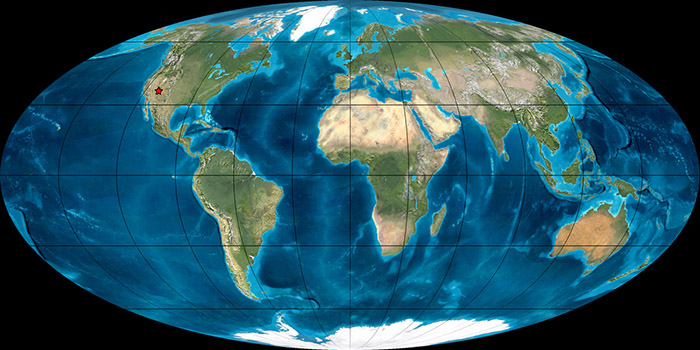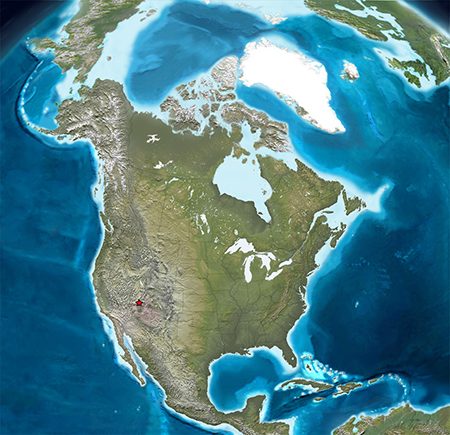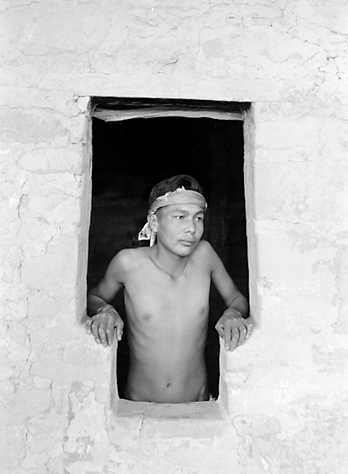
Map of Continents Through Time

Time in History: 1100 years ago*
* Human evolution has spanned several million years, with essentially modern humans present by about 200,000 years ago. Man entered the North America probably between 20,000 and 30,000 years ago, but we will be discussing local prehistory in the Formative (agricultural) period, about 1000 years ago. The people found in this area at that time were of the Fremont and Anasazi cultures, or Ancestral Peubloans.
Environment Parameters & Graphs of Carbon & Oxygen
|
 |
Question of the Day:
What evolutionary features have led to the success of human beings?
Key Concepts
Dispatch
Coming Soon!
| Daily Video | Expert Video |
|---|---|
Coming Soon! |
Photos of the Day
Coming Soon!
Character of the Day: Ancestral Pueblo Peoples 
Ancestral Pueblo peoples were an ancient Native American culture found in southern Utah, northern Arizona, southwestern Colorado, and northwestern New Mexico. The term Pueblo (meaning “village” in Spanish) originated with the Spanish explorers, who used the settlement pattern to describe the native people. The ancestral Puebloans lived in a variety of structures including pit houses, pueblos (like the one pictured above), and cliff dwellings. The young man pictured above is a direct descendent of the ancestral Puebloan peoples.
Youth Ambassador Activity
Over the course of the expedition we ran through a total of 254.5 million years, from before the start of the dinosaurs to the ascent of mankind. Yesterday we arrived back at present day.
Human evolution has spanned several million years, with modern humans present by about 200,000 years ago. Man entered the North America between 20,000 and 30,000 years ago, but today we will be focusing on prehistory in the formative (agricultural) period, about 1000 years ago. The people found in this area at that time were of the Fremont and Anasazi cultures, or Ancestral Peubloans.
When you run today please consider what life would have been like for the early people of this region, how they would have lived on this land you are running through, which is essentially unchanged from then. How did they function in a world without cars, roads, stores, and cellphones? What impact have the changes in our technology and culture in the past 1000 had on the environment? Given what you have learned over the past 8 days what conclusions can you make about the relationship between human activity and world ecology.